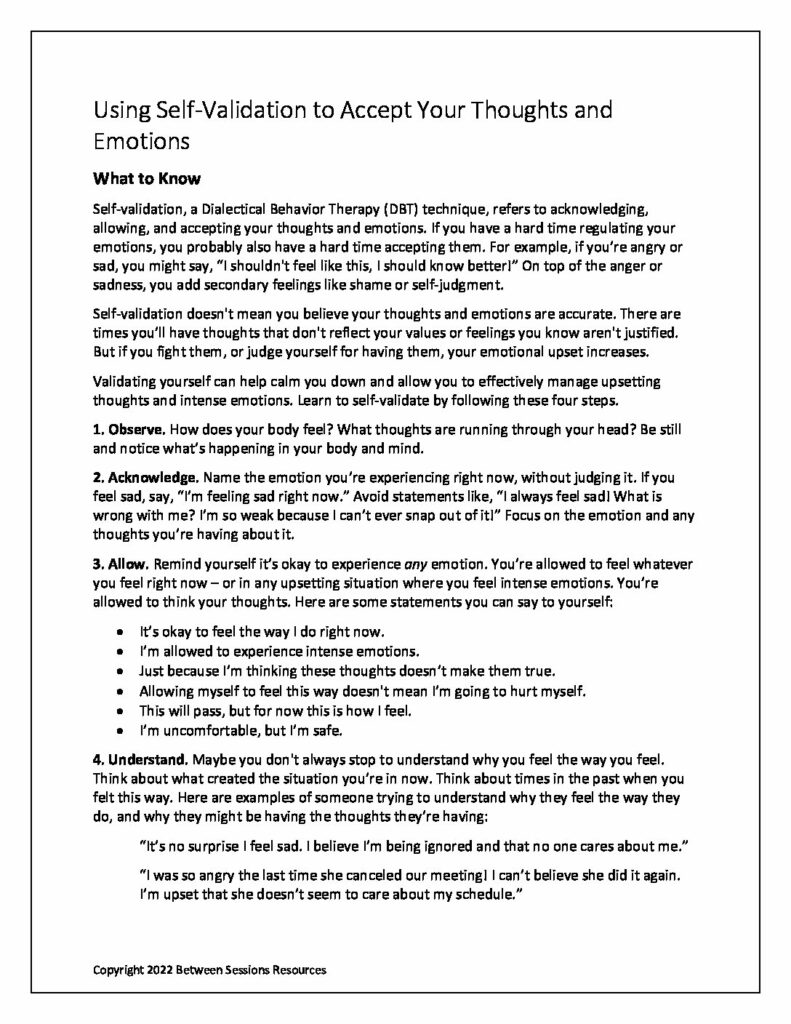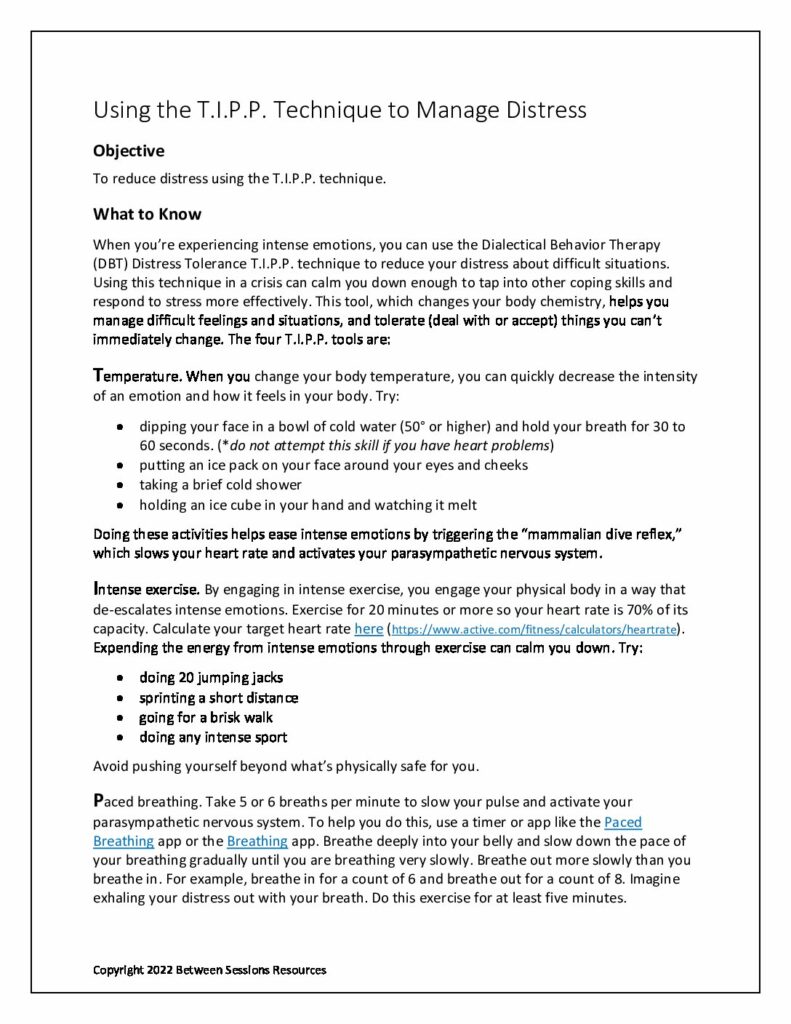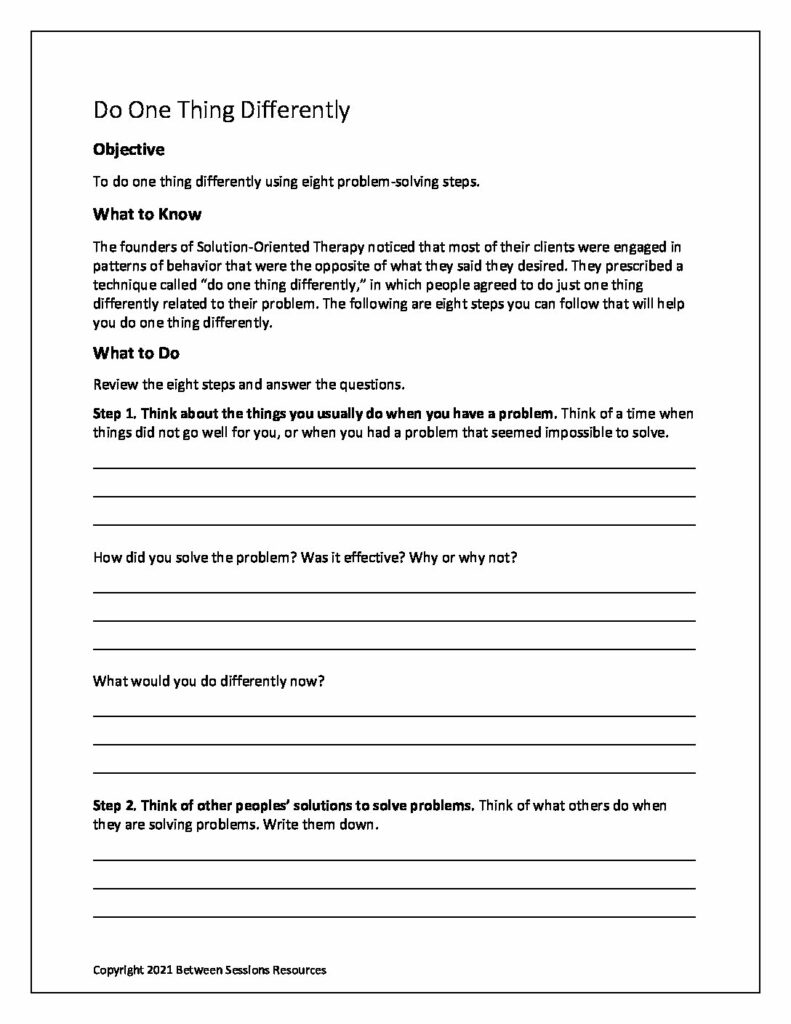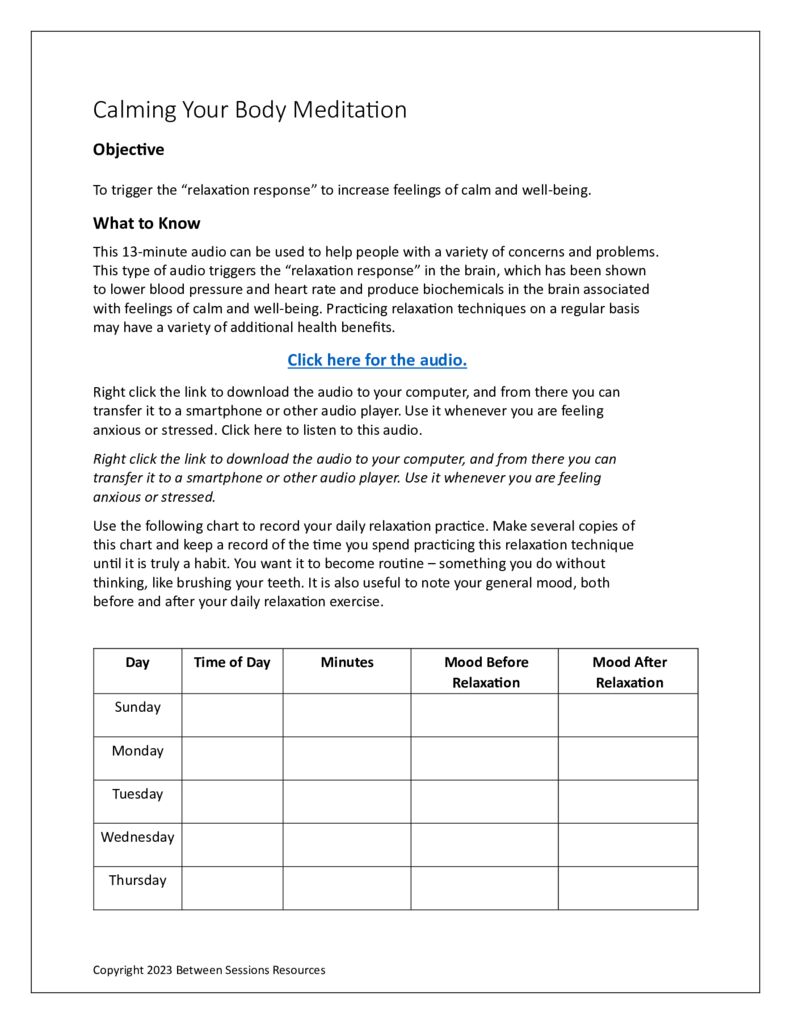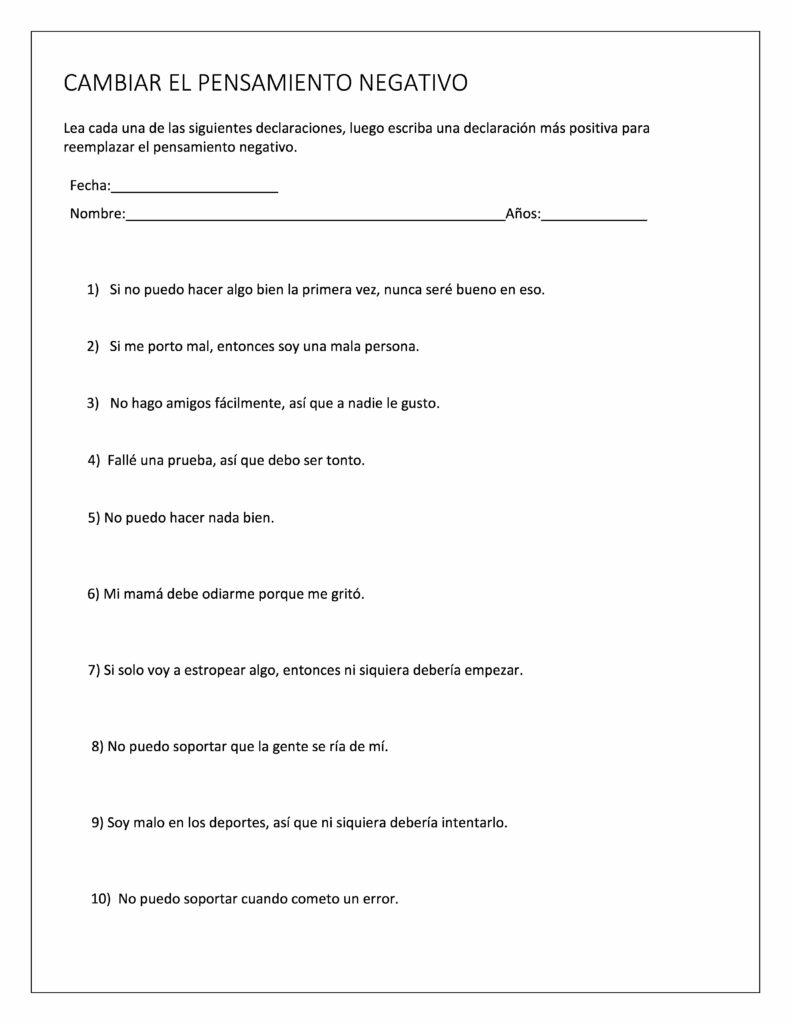This worksheet helps people understand the DBT concept of self-validation, acknowledging, allowing, and accepting your thoughts and emotions. The 4 steps of self-validation are: Observe, Acknowledge, Allow and Understand. A chart helps people practice these four important steps. (0122, DBT, self-acceptance)
This worksheet describes the T.I.P.P. Technique used by advocates of DBT to deal with intense emotions. The acronym stands for: Temperature, Intense Exercise, Paced Breathing, and Paired Muscle Relaxation. A chart is included for clients to keep track of which technique is most helpful. (0122, DBT, emotional regulation, emotions, grounding)
This worksheet suggests eight techniques to help people deal with intense feelings after a breakup. Follow-up questions ask people to explore their anger and think about new coping techniques. (1121, marriage, breakup, divorce, anger, relationships)
Clients learn to re-orient their thinking. (1121, problem-solving, solutions, depression, anxiety)
This 13-minute audio can be used to help people with a variety of concerns and problems. This
type of audio triggers the “relaxation response” in the brain, which has been shown to lower
blood pressure and heart rate and produce biochemicals in the brain associated with feelings of
calm and well-being. Practicing relaxation techniques on a regular basis may have a variety of
additional health benefits. The worksheet includes a chart for clients to keep track of how often they practice relaxation exercises and the effect on their mood. (0723, relaxation, stress, audio)
This worksheet helps people learn and practice progressive muscle relaxation, a technique that involves tensing specific muscle groups and then relaxing them. (100721, relaxation, progressive relaxation)
This worksheet is designed to help people understand how anger shows in their bodies and gives them suggestions on how they can cope with difficult feelings. (0921, anger control, emotional regulation)
These Coping Cards can be used by people who want to replace negative behaviors with positive ones. A useful technique to help in breaking negative habits. Spanish Version. (Spanish, 0221, negative thinking)
This technique is designed to help people increase their ability to have positive outcomes in conflicts with others. The FAIR technique is an acronym for: be Fair; use no Apologies; Stick to your values, be Truthful. The worksheet asks people to consider how they have handled conflicts in the past and to what extent their have compromised their values so that their self-respect was diminished. It asks them to practice the FAIR technique and record the outcomes and how they felt about themselves. This technique is adapted from DBT therapy. (DBT, interpersonal effectiveness, compromise, conflict, relationships, 1020)
This worksheet helps people understand the behavioral chain that leads to intense emotional episodes. (Borderline Personality Disorder, BPD, 0920)

